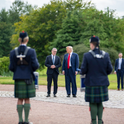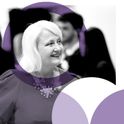When Benjamin Disraeli was asked why he wanted to enter the House of Commons, the answer struck him as obvious. “We come here for fame,” he said, and scurried off to do something exciting. He was partly right; after all, I’ve quoted him here. Yet scarcely any MPs achieve fame. The official history of parliament does not even have a full list of all the MPs that have ever been elected. Why is this, and why do these apparently unexceptional people seek elected office? A recent book of interviews with MPs, Tony Russell’s Commons People (Matadow, £9.99), does its best to answer this question.
As anyone from Stalin to David Brent will tell you, power is wonderfully fulfilling, and many MPs go to Westminster in the misguided belief that it lets them run the country. Except for in extremely rare instances—where in any case it is the mass of backbenchers instead of an individual crusader that get things done—that doesn't happen. Commons People only interviews backbenchers; perhaps if cabinet ministers were included the results would have been different, though given our government’s capacity to recruit those incapable of saying things of their own, such a grilling might not be very productive.
For a depressingly large number of backbenchers, much of their time is spent dreaming of ministerial power. “As Napoleon said,” pipes up Tory backbencher Andrew Bridgen, “in every soldier’s back pack there is a field marshal’s baton.” Perhaps one day, if he plays his cards right, Brigden will be minister for fish. Jobs like these are what the whips call “baubles,” dangled in front of hypnotised members in an effort to get them onside. Insiders such as Alan Clark and Chris Mullin have questioned whether such offices are worthy of the name—less baubles, more malfunctioning fairy lights. But the scurrying elves of the prime minister have other tricks to calm the rebels. As Sadiq Khan warns potential traitors, the whips “send you to Coventry and don’t talk to you because they see you as disloyal.”
Commons People takes the reader on a leisurely tour of MPs’ private offices—the dressing rooms rather than the stage of British politics. Wandering about these surprisingly cramped and tiny roomlets, the first thing that hits you is the laughing. Judging from this book it cannot be possible to walk into a room without gales blowing you away, such is the number of MPs prostrate with laughter at their own unfunny jokes. Telling asides of (laughter) litter Commons People’s pages, after comments such as, “Opposition isn’t great and I’m on a mission to make it as short as possible!”
After the laughter comes the cliché. If something is regularly written in the tabloids, it will be regularly spoken by MPs, from the contemporary rhetoric over benefit “scroungers” to phrases such as “broken Britain.” For those confused about why politicians persistently do what the tabloids want, MPs’ use of tabloid cliché in conversation should be the first port of call.
A third trend which runs through the interviews is the breezy normality of the members who talk. When George Osborne gave a speech on benefit reforms, everybody’s favourite heir to a 17th-century baronetcy dropped his usual patrician plink for a rather fruity Estuary twang. This act, familiar to fans of the Oxford-educated millionaire Ed Miliband, did not run well, and Osborne was widely panned for the bad impressions in his first-night performance, compared by Labour List to the Artful Dodger. But Osborne’s play-acting was not so much an attempt to imitate the masses as to imitate his fellow MPs. Viewers of the BBC Parliament channel will know the House of Commons by its jungle chorus of dialects from across the British Isles, a chorus reflected in the amazing variation of tone and dialect in even the printed words of Commons People. It is a pleasing reminder of how representative the House of Commons is—or, depending how you look at it, how the political class has ensnared recruits from across the whole country.
Ordinary people often claim not to have the time to participate in politics; why should MPs not have time to be ordinary people? But it depends on your definition of ordinary. In the days when the average voter was far removed from the average person, this could be little more than showing off. William Gladstone read Homer for “fun.” Thomas Jefferson studied French engineering manuals.
If Commons People is anything to go by, these revelries are mostly past: in addition to their often tragically boring day job (“getting involved in committees is important to me,” says one), off-duty MPs are now principally concerned with football, tennis and, for some inexplicable reason, hill-walking. But tastes can still vary—or at least, MPs can pretend they do. There is the catholic (“The Beatles are definitely my favourite band”), the very catholic (“I like knitting”), and the hardcore (“I enjoy being a non-stipendiary fellow of All Souls College, Oxford, and maintaining daily commentary on the health of the world economy and UK politics at www.johnredwood.com”).
If these are our MPs, where does this leave the House of Commons? Even with scant significance as a governing institution it is still a mighty part of the body politic. But which part? Undeniably it is the bottom. Split down the middle, the subject of much ridicule despite its noble functions, and something people like to unendingly talk out of.
Nonetheless, as a collection of individuals its importance is enormous. The usual cliché portrays the House of Commons as a much less powerful thing than it is “supposed” to be, because it is extremely unlikely to pass anything not sanctioned by the government. While this is true, individual members wield increasing power in their constituencies. Obsession with constituency work is rising, paralleling an apparently terminal decline in the power of local government. The place to go to get things done is your MP—not, as it was 50 years ago, your local council. Consequently, the quality of individual MPs really is more important than ever. We should do the opposite of what they want and think before voting for them.
Why do MPs do it?
Life on the back benches
April 30, 2013

© UK Parliament











